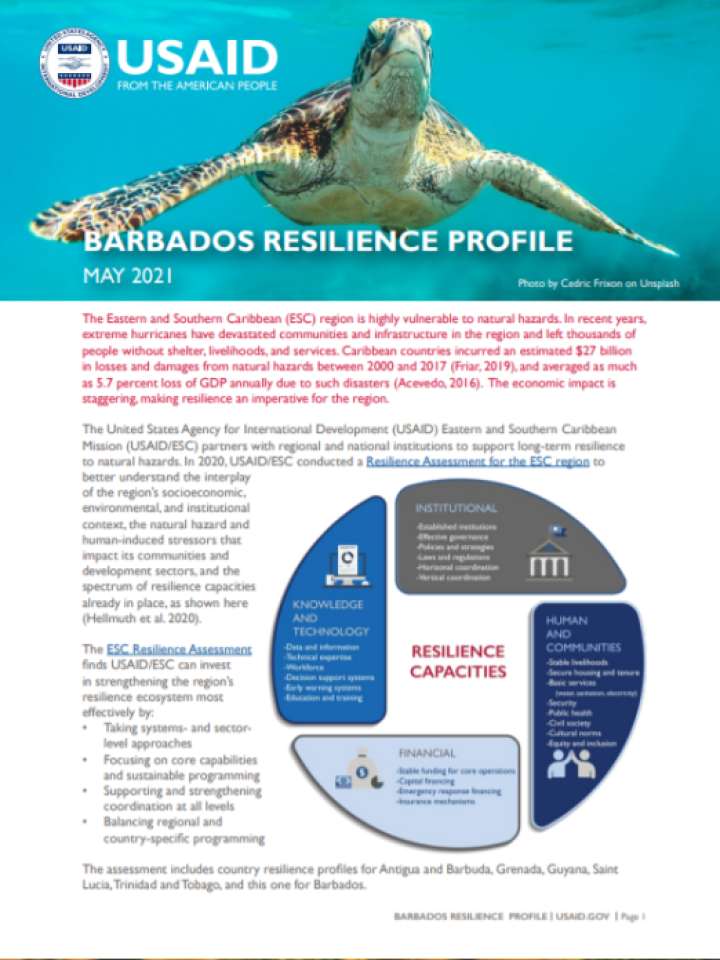Barbados resilience profile
This report summarizes the resilience situation in Barbados. The country is one of the most populated and prosperous Caribbean nations, scoring high on many United Nations Human Development Index indicators. However, the country is challenged by youth poverty and impacts from natural disasters. Tourism is the primary source of income for the country, which has suffered from the impacts of travel moratoriums during the COVID-19 pandemic. Being a mostly low-lying country, Barbados experiences flash floods, droughts, small-scale landslides, earthquakes, and fires. The country’s disaster and emergency management legislation and structure is strong, as is its data collection, but implementation of policy and deployment of these data resources are still lacking.
The report recognizes Barbados as a water-scarce country and droughts have had severe implications for water resources users, including the agriculture and tourism industries. Barbados experiences earthquakes frequently and is ranked in the top 10 countries in the world in terms of probable maximum loss from earthquakes. Wildfires are common during the dry season and pose a risk to human health, crops, property, and water resources. Finally, the country is at risk from changing instances of pests due to climate change, including the introduction of non-native invasive pests. Management of these risks entails capacity development to implement legislation, centralization and integration of data across agencies presents issues for analysis and planning effort, funding to maintain data collection and management programs effectively, and increasing human resource capacities.
Explore further
